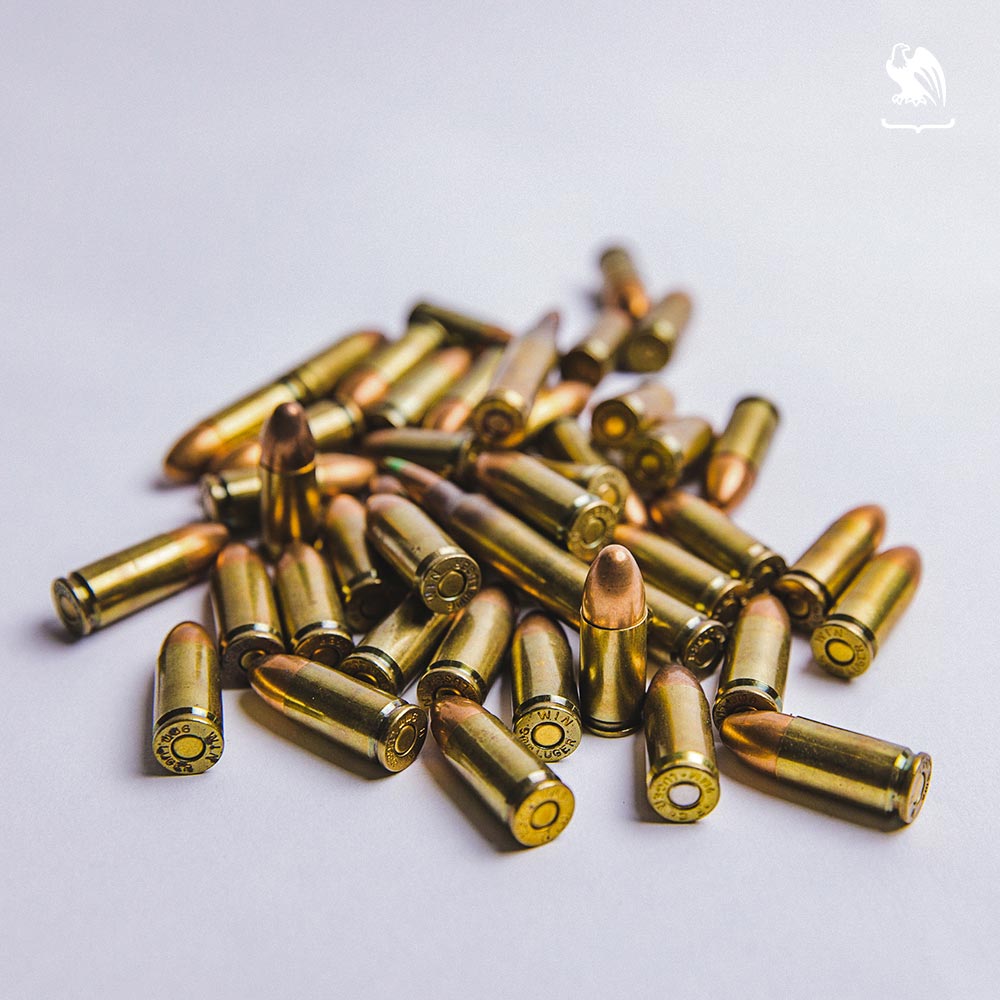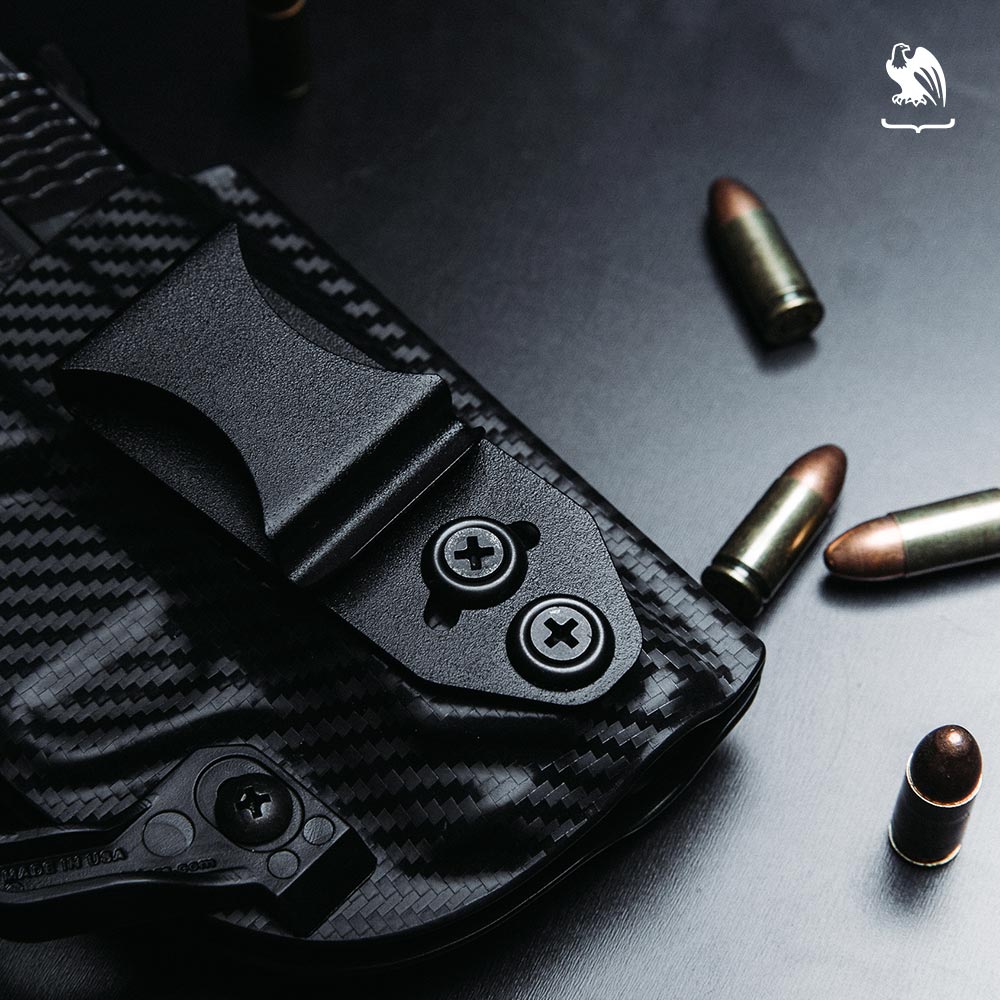The Difference Between Hunting and Self-Defense Ammo

When it comes to ammunition, not all rounds are created equal. Depending on your specific needs or activities, you'll find stark contrasts in the difference between hunting and self-defense ammo.
In this blog post, we'll explore the unique characteristics of each type of ammunition, diving into their composition, design differences, and how their performance varies in real-life scenarios.
Whether you're an experienced shooter or a newcomer to the world of firearms, understanding these distinctions is crucial for making well-informed decisions about the right ammunition for your needs.
Key Takeaways
- Hunting ammo is typically made of soft point bullets that expand upon impact, preserving meat quality but sacrificing stopping power.
- Self-defense ammo often features jacketed hollow point (JHP) bullets designed to transfer energy onto the target instantly upon impact and minimize collateral damage while neutralizing threats posed by assailants.
- Consider personal preference, situational analysis, proper training and practice, hunter's ethics, and responsible gun use. Additionally, laws regarding ammunition may vary depending on state or local regulations; it is essential to understand these laws before purchasing or using any type of ammunition for either purpose.
Understanding Hunting and Self-Defense Ammo

Hunting and self-defense ammo differ in composition and design, with self-defense rounds typically being hollow point and hunting rounds usually soft points, while match bullets often fragment upon impact.
Composition and Design Differences
One of the most critical distinctions between hunting and self-defense ammunition lies in their composition and design. Each type of ammo serves a specific purpose, catering to the unique requirements of either hunting or personal protection.
For instance, popular ammo for deer hunters may include soft-point bullets that expand upon impact while maintaining enough penetration to reach vital organs.
In contrast, self-defense ammo often features jacketed hollow point (JHP) bullets designed for maximum stopping power without overpenetration. These rounds focus on transferring energy onto the target upon impact, causing immediate incapacitation and reducing potential harm to innocent bystanders.
A prime example is when police officers use JHP rounds that minimize collateral damage while successfully neutralizing threats from aggressors or assailants.
Hollow Point vs. Soft Point Bullets
Understanding the difference between hunting and self-defense ammo comes from studying bullet types. Hollow point rounds are designed with a pit or hollowed-out shape at their tip, which causes them to expand upon impact.
On the other hand, soft point bullets have a softer lead core surrounded by a thin jacket of harder metal material. While these also expand on impact, they do so less dramatically than hollow points.
As such, big game hunters prefer them. They want to preserve as much meat and tissue as possible while ensuring ethical kills.
Terminal Ballistics
Terminal ballistics, a crucial concept in hunting and self-defense ammunition, refers to the study of how projectiles behave when they impact their targets. This analysis helps predict the performance of bullets, slugs, or pellets on game animals or potential threats in self-defense situations.
A clear understanding of terminal ballistics is essential for selecting the right ammunition based on your needs. Take Underwood Ammo as an example: they offer a wide selection of premium rounds designed for self-defense and hunting purposes.
When engaged in either activity, it's important to remember that ethical considerations should play a significant role in making informed decisions about ammunition type and use.
Pros and Cons of Hunting and Self-Defense Ammo
Hunting ammo offers a longer range and higher accuracy, but may lack stopping power and penetration for self-defense situations.
Hunting Ammo Benefits and Drawbacks
Hunting ammunition is designed for taking down game animals, such as deer, elk, and bears. These bullets are typically heavier with a larger diameter and have a higher velocity.
The benefits of hunting ammo include its accuracy at longer ranges and increased stopping power due to the larger bullet size.
One drawback of hunting ammo is that it can be overkill for small game animals or varmints, causing unnecessary damage to the surrounding area or meat quality. Additionally, some states have laws prohibiting the use of certain types of hunting ammo during specific seasons or in certain areas.
Self-Defense Ammo Advantages and Limitations
Self-defense ammo is specifically designed to stop an attacker with minimal shots. This type of ammunition typically has a hollow point bullet that expands upon impact, creating a larger wound channel and stopping the threat more effectively than full metal jacket (FMJ) ammo.
However, one limitation is that it may not penetrate as deeply as other types of ammo. It's important to choose self-defense ammo based on the intended use and scenario.
For example, frangible ammo may not be ideal in unpredictable situations because it does not penetrate well, while FMJ bullets are less effective for home defense due to the risk of over-penetration.

Key Differences Between Hunting and Self-Defense Ammo
Hunting and self-defense ammo differ in accuracy, stopping power, and legal considerations. Read on to learn more about choosing the right ammo for your needs.
Accuracy and Range
One of the significant differences between hunting and self-defense ammo is their accuracy and range capabilities. Hunting ammo must be accurate at long ranges to ensure an ethical kill, while self-defense ammunition is more effective in close-range encounters.
To achieve long-range accuracy, hunters need to choose a bullet type that has a high ballistic coefficient or low wind resistance.
On the other hand, home defense situations require less concern for precision shooting but still require accuracy within close range. For example, hollow point bullets can effectively stop an attacker without over-penetrating walls in a typical household setting.
Stopping Power and Penetration
Stopping power and penetration are two critical factors when choosing between hunting and self-defense ammo. The term "stopping power" refers to the ability of a bullet to incapacitate a target, while penetration is the depth to which a bullet can penetrate an object or living organism.
In terms of penetration, hunting ammo typically has more significant penetrating capabilities than self-defense ammo as it often needs to pass through thick hides and bones before reaching vital organs.
However, over-penetration can present risks such as killing unintended targets beyond the intended one. Self-defense ammunition usually has less potential for penetrating multiple layers of drywall or other obstacles creating safety issues if used within home defense scenarios.
Legal Considerations
It is important to understand the legal considerations when it comes to hunting and self-defense ammo. While both types of ammunition are legal, there may be restrictions on where and how you use them.
For example, some states have regulations on hollow point bullets for hunting certain animals.
You must research local laws before purchasing or using any ammunition for either purpose. It's also essential to receive proper training and follow safe gun practices to avoid any accidental harm or misuse that could result in legal consequences.
Choosing the Right Ammo for Your Needs

To ensure accuracy and effectiveness, choose the right ammo for your gun. Consider personal preference, situational analysis, proper training and practice, hunter's ethics, and responsible gun use.
Personal Preference and Situational Analysis
When selecting the right ammo for your needs, personal preference and situational analysis are factors. Personal preferences like the type of firearm you're comfortable shooting with and the recoil impact can influence your choice of ammo.
A hunter may prefer a specific brand or caliber based on their own experiences in previous hunting trips.
On the other hand, situational analysis involves evaluating environmental factors surrounding your ammunition usage. For example, if you live in an urban area where self-defense situations are likely, select self-defense ammo designed to have stopping power while maintaining accuracy within confined spaces.
Overall, understanding personal preferences and conducting situational analyses will help ensure the proper selection of ammunition for hunting or self-defense purposes.
Proper Training and Practice
To ensure safety and effectiveness, proper training and practice are essential when using hunting or self-defense ammo.
For hunters, this means practicing shot placement on targets that mimic real-life scenarios to increase accuracy and reduce the risk of injuring the animal instead of killing it outright.
Seek professional instruction from certified trainers or instructors who can provide guidance on safe handling techniques for firearms and ammunition.
Hunter’s Ethics and Responsible Gun Use
As a responsible hunter, it's essential to adhere to hunter's ethics and practice safe gun use. Hunter's ethics emphasize the importance of using a weapon powerful enough to cleanly kill the hunted animal without causing undue suffering.
Responsible gun use requires checking the barrel and ammunition before heading out into the field, ensuring that your firearm is safe to operate, properly storing your firearms when not in use, and using only the correct ammunition for your gun.
Conclusion
In summary, the difference between hunting and self-defense ammo lies in their composition, design, and terminal ballistics. Both types of ammunition have pros and cons that hunters and gun owners should consider.
When it comes to choosing the right ammo for your needs, personal preference is important but situational analysis, proper training, and responsible gun use are equally essential factors to keep in mind.
